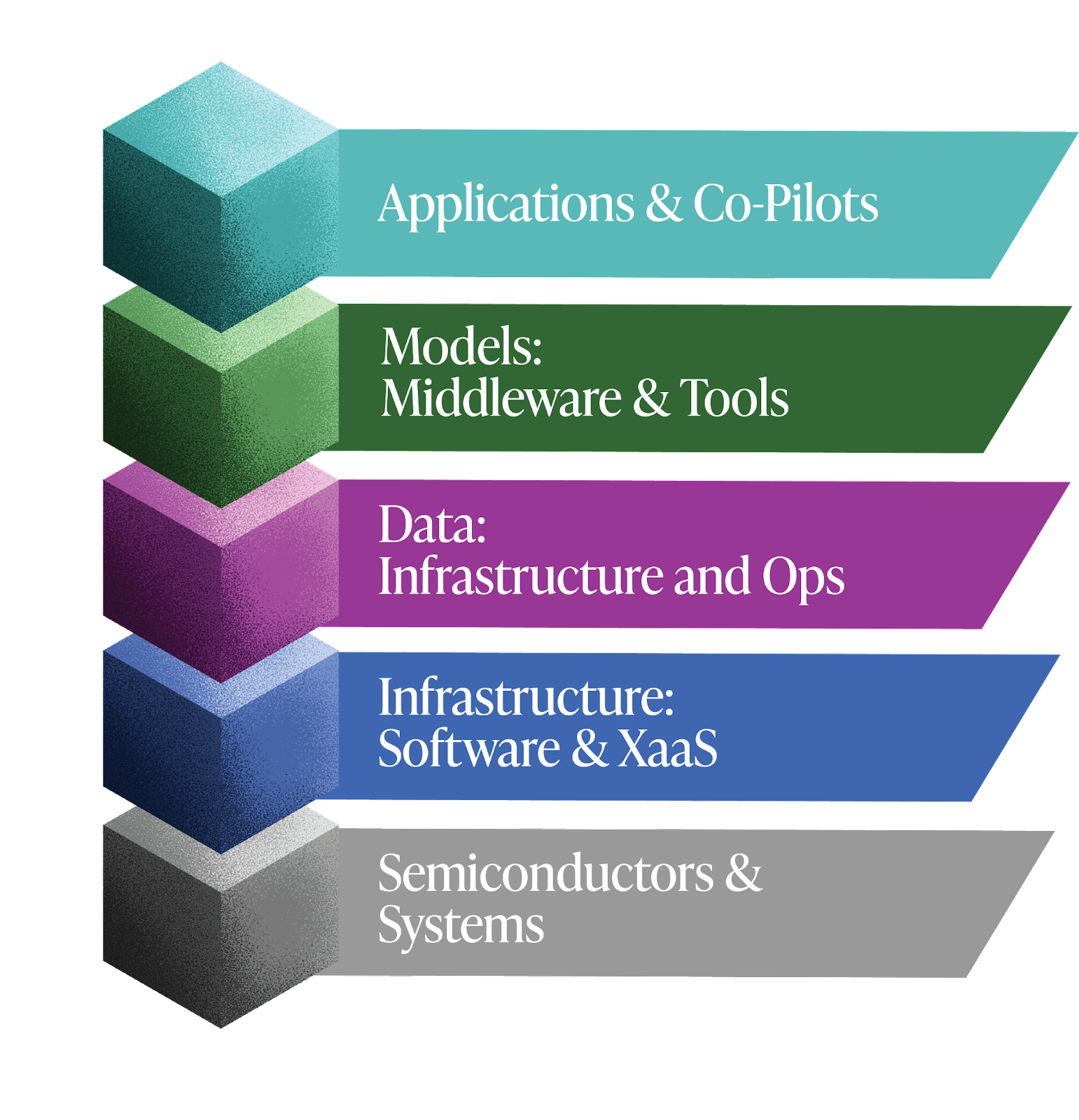Navin Chaddha
We believe that we are at the dawn of the generative AI era, similar to the prior PC, web, mobile and cloud eras, which represents a sea change in how consumers and businesses will interact with technology. However, building successful companies will require a specialized focus from investors — not just in providing capital but also in operational prowess that’s as unique and forward-thinking as the generative AI industry itself.
Last week, we announced the first dedicated seed vehicle in our history, the $250 million Mayfield AI Start, which will support founders starting at day zero.
As we meet with many AI-native founders, here are the top five pieces of company-building advice we’re sharing with them.
1. How do you plan to dominate this new tech stack layer?
Paradigm shifts propel the rebuilding of the technology stack, creating new enduring companies in every era. For instance, Oracle rose to prominence as the PC era enterprise software provider, but in the cloud era, Salesforce and the SaaS model became a viable alternative. Intel dominated as the chip king in the PC era but mobile customers preferred ARM (Advanced RISC Machine), which is now being displaced by RISC-V today.
The AI era has already created leaders like Nvidia on the chip front and is giving rise to emerging leaders like open source AI model community Hugging Face (similar to GitHub in the cloud age) and foundational model platform OpenAI, whose ChatGPT is being compared to the Netscape browser moment of the web era.
So we are encouraging AI-first founders to think big about how they will become an independent company that dominates a layer of the new technology stack.

2. Are you providing a painkiller or a vitamin?
AI-powered innovation, in particular with large language models and generative AI, has the opportunity to create new markets and shift the dynamics in existing markets. But it is important to identify what innovation bet a founder is making and frame it as a painkiller, not a vitamin for the specific persona they are targeting.
Some questions we are encouraging founders to ask include:
- Is my company driven by the fundamental belief in the responsible and human-centered use of AI?
- Are we providing trust and safety around proprietary data, and will the compliance department resonate with this?
- Are we leveraging generative AI into domain-specific workflows that improve the business productivity of sales, lawyers, engineers, marketing, support and others in the enterprise?
- Do we have a strategy to reduce training and inference compute costs for our customers and our company?
- Are we making it easier for developers and data scientists to build applications?
3. What is your unfair advantage?
We believe that innovation does not stop at the technology or product level, but extends across the value chain. We ask founders to think about other moats they can build, like:
- Vertical foundational models.
- Proprietary datasets.
- Architectural innovation in semiconductors.
- Business models with varied pricing options.
- Diverse go-to-market strategies such as open source or PLG (product-led growth) with network or data effects.
4. Are you automating or adding value?
AI has been described as everything from an extinction event to the latest chapter in the investing hype cycle. For several years now, we have seen companies leverage a movement we refer to as the “Rise of the Individual,” in which software augments humans and elevates them versus merely thinking of them as their customers. Founders who begin with the intention of building AI that is a teammate to humans by providing a co-pilot for their users are already seeing huge adoption.

5. How much are you raising, and how will you spend it?
Investors appreciate founders having a clear idea of how they will use the capital they plan to raise. It should match their team makeup (e.g., if it’s a solo founder, she needs to make sure she sets aside enough of an ESOP pool to attract her founding hires); their business model (allocating enough cash if it is a compute-heavy model); and their early product plans (if it’s software only, will it require infrastructure for training, etc.).
We look forward to partnering with bold entrepreneurs to power a responsible AI-first future!





























Comment